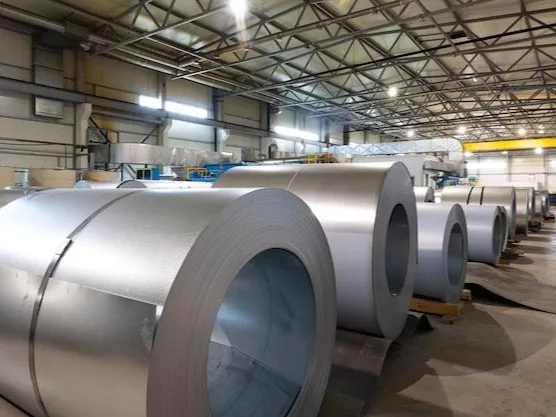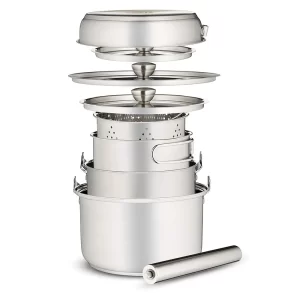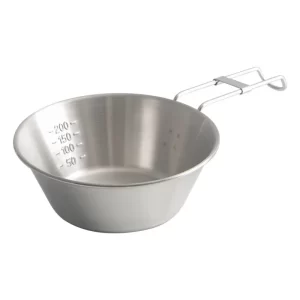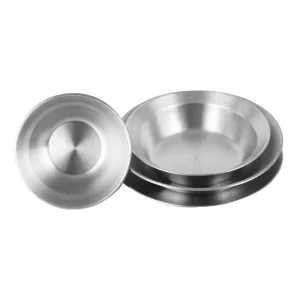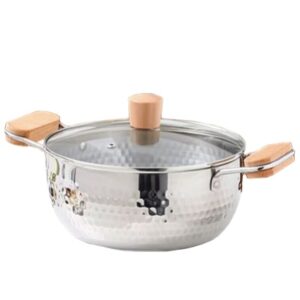Stainless steel is not a pure non-ferrous metal by strict definition.
Although some types of stainless steel (especially austenitic stainless steel) are non-magnetic, it is made of iron after all, so it cannot be completely classified as a “non-ferrous metal”. However, in practical applications, we often regard stainless steel as an “iron-based alloy“.
In modern kitchens, stainless steel cookware is a must-have for almost every home and restaurant. It is not only durable and easy to clean but also has a high-end appearance, so it is very popular. However, many people still have a question when buying stainless steel cookware: “Is stainless steel a non-ferrous metal?” Today, Chancescook will help you solve this mystery.
Table of Contents
ToggleWhat is Non-ferrous Metal?
First, we need to clarify the concept of “non-ferrous metal”. Simply put, non-ferrous metals are metals that contain no or very little iron and usually refer to “non-magnetic” metals. Common non-ferrous metals include copper, aluminum, gold, silver, etc. They have many common characteristics, such as corrosion resistance, good conductivity, and not being attracted by magnets.
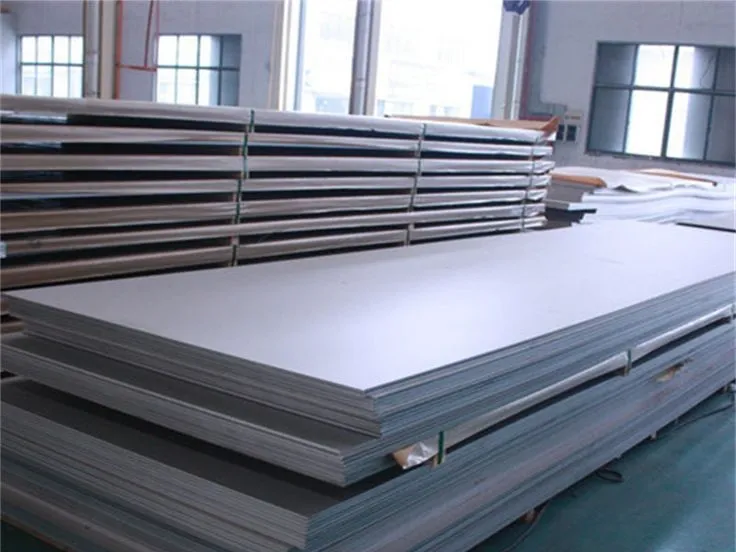
What Exactly is Stainless Steel?
Stainless steel is an alloy of various metal elements such as iron, chromium, and nickel. Because of the chromium element, stainless steel has excellent anti-oxidation and corrosion resistance, preventing it from rusting in the air. At this point, many people will ask, is stainless steel a “ferromagnetic metal” or a “non-ferrous metal”?
Magnetic Characteristics of Stainless Steel
The magnetism of stainless steel is not fixed; it will vary according to the composition and structure of the alloy. Let’s take a look at several common types of stainless steel and how their magnetism behaves:
Austenitic Stainless Steel
This type of stainless steel (304 stainless steel) contains more nickel and chromium and is usually non-magnetic. In other words, if you hold a piece of 304 stainless steel cookware in front of a magnet, the magnet will not attract it. Most high-end kitchen utensils, tableware, and medical equipment use austenitic stainless steel.
Martensitic Stainless Steel
This type of stainless steel (such as 410 stainless steel) contains more carbon and chromium and is usually magnetic. So, if you take a piece of 410 stainless steel, it will be attracted by a magnet.
Ferritic Stainless Steel
This type of stainless steel (such as 430 stainless steel) also contains a certain proportion of chromium and is usually magnetic. It is often used in some more economical kitchen utensils.
Why Do People Like Stainless Steel?
Although the question of whether stainless steel is magnetic is a bit complicated, the advantages of stainless steel are obvious. It is not only resistant to high temperatures and corrosion but also has a smooth surface, is easy to clean, and has a long service life. Therefore, stainless steel cookware, kitchenware, tableware, medical equipment and other fields cannot do without it.
Why Choose Chancescook?
As a professional stainless steel cookware manufacturer, Chancescook focuses on providing high-quality stainless steel cookware and cookware sets for corporate customers. Whether you want to purchase in large quantities or have special customized needs, we can provide you with professional services. Our advantages are:
- High-quality products: We use high-quality stainless steel materials to ensure that the products are durable, easy to clean, non-toxic, and harmless.
- Customized services: According to your needs, we provide customized design and processing, including size, shape, brand logo, etc.
- Contract manufacturing: We provide you with contract manufacturing services, strictly produce according to your requirements, and ensure that every product meets the standards.
- Strict quality control: From raw materials to production processes, we have a strict quality control system to ensure that each batch of products meets international standards.
- Professional after-sales: Our team provides full tracking services to ensure the use effect of the product.
If you are looking for stainless steel cookware wholesale, or need customized services, please contact us. Chancescook will provide you with the most professional solutions to help you improve your brand image and product quality!
I hope this article can help you better understand the properties of stainless steel. If you have more questions or want to learn more about our products, please feel free to contact us!
Conclusion
In general, whether stainless steel belongs to non-ferrous metal depends on its type. Austenitic stainless steel is usually non-magnetic, while martensitic and ferritic stainless steel are magnetic. Therefore, stainless steel does not fully meet the definition of “non-ferrous metal”, but its corrosion resistance, durability, and easy-to-clean properties make it the material of choice in the kitchen and industrial fields. No matter what type of stainless steel, it plays an important role in modern life.

